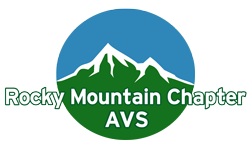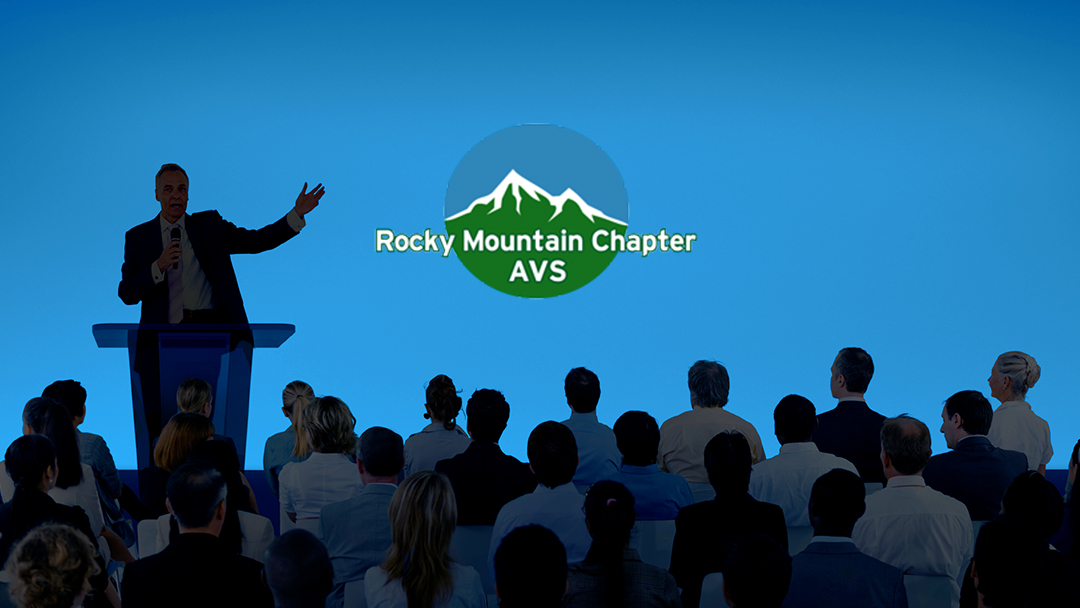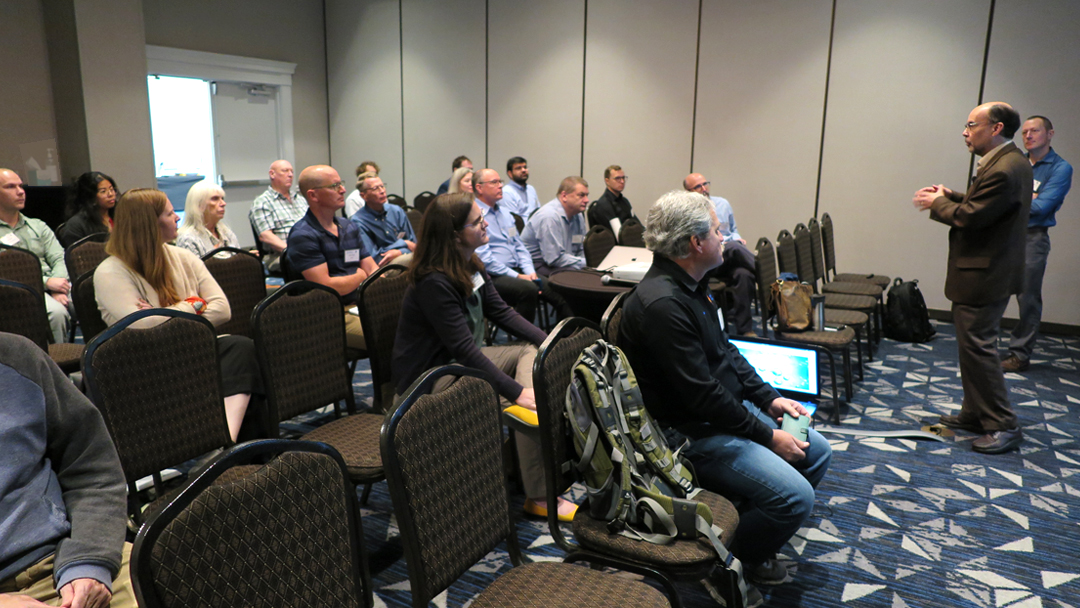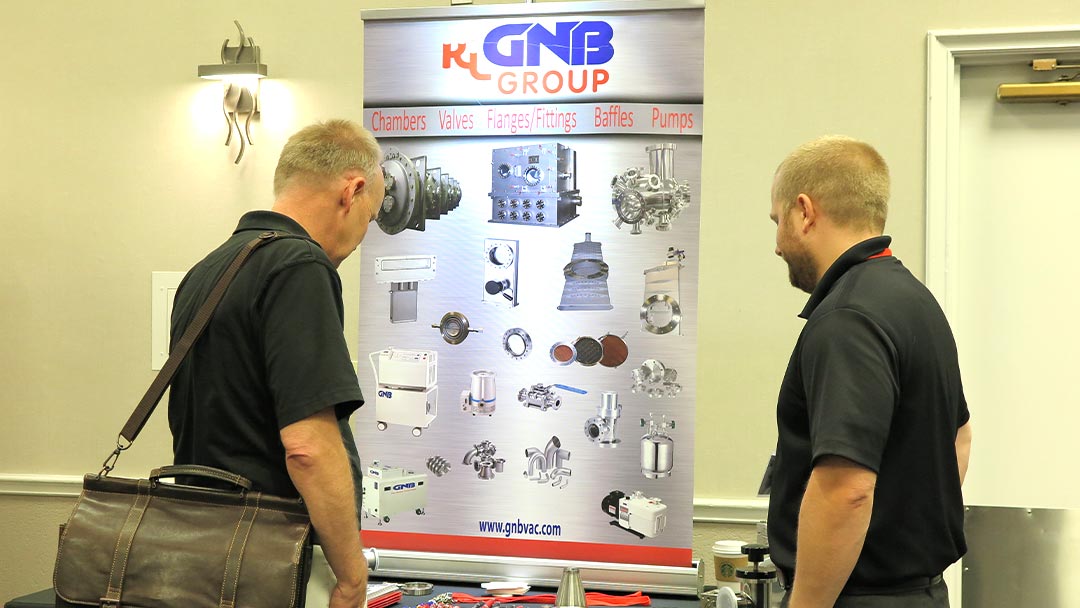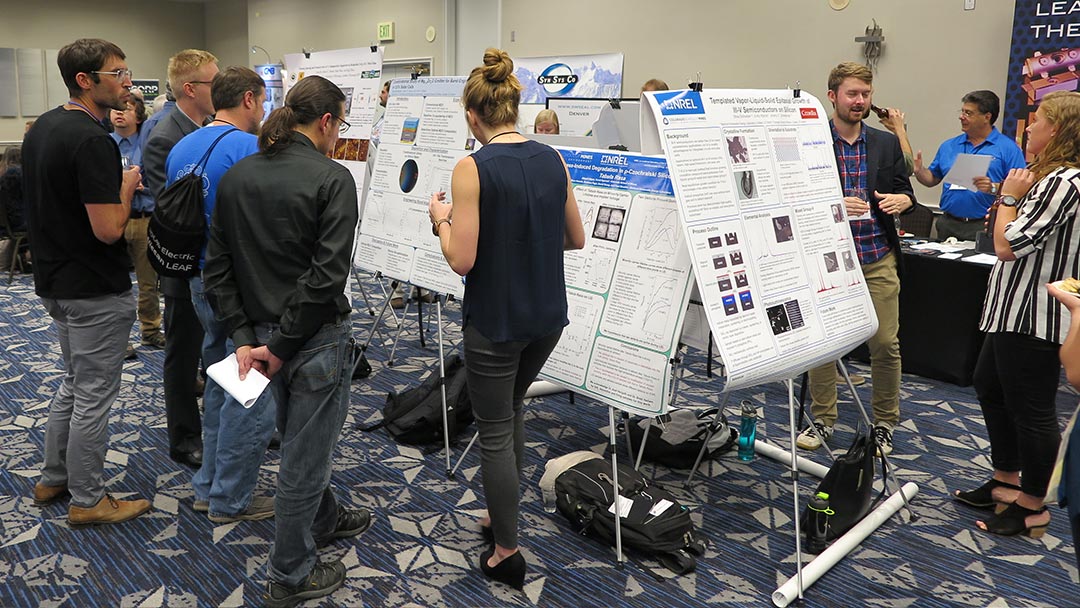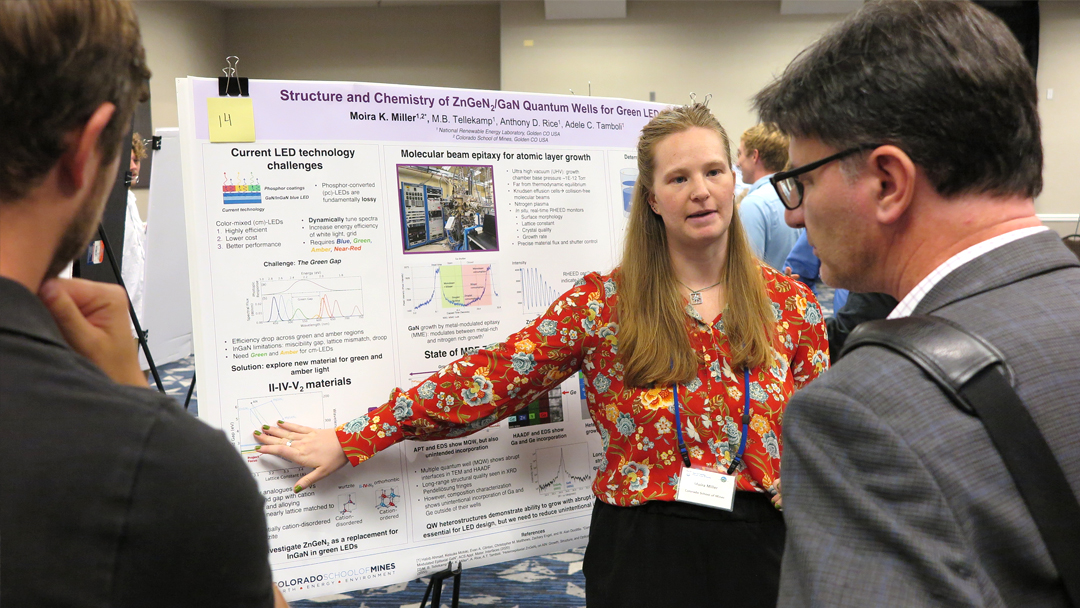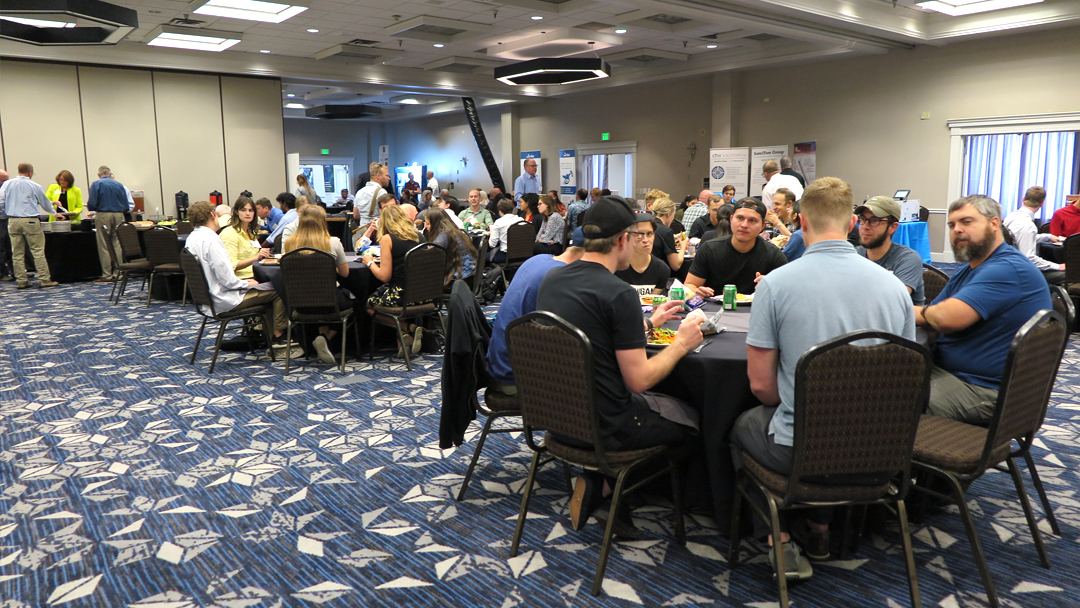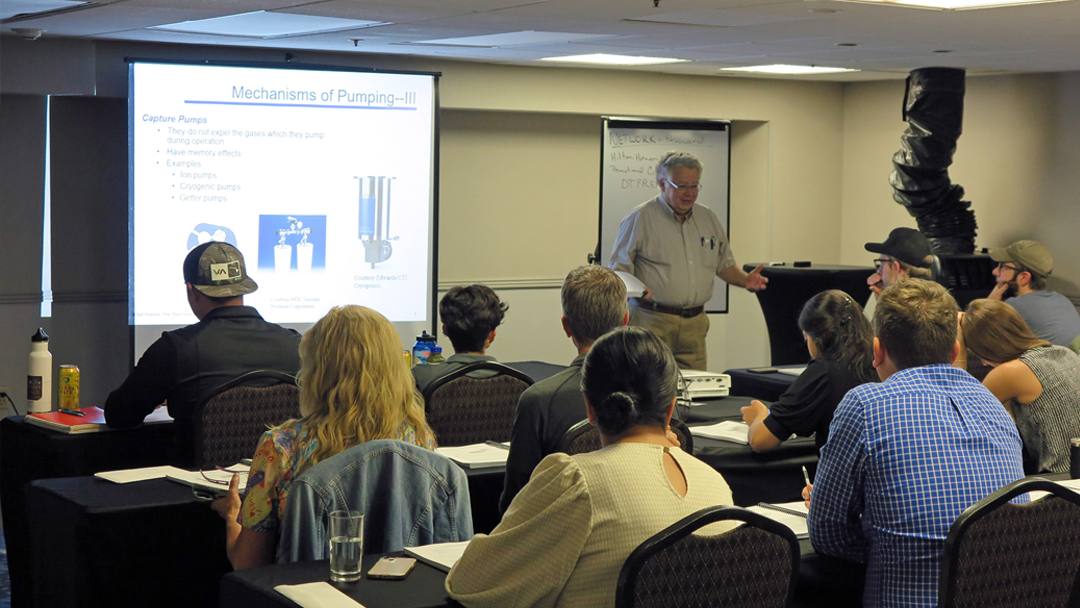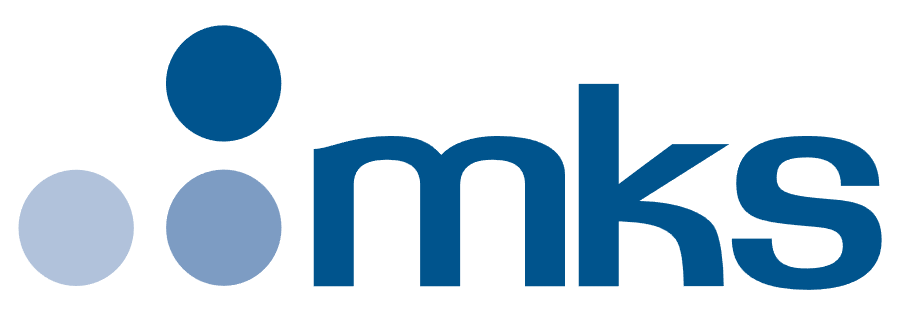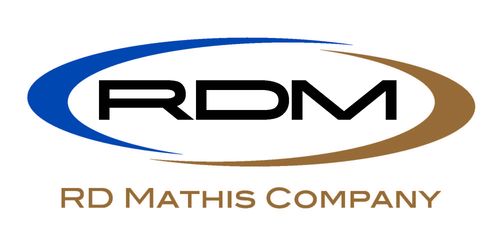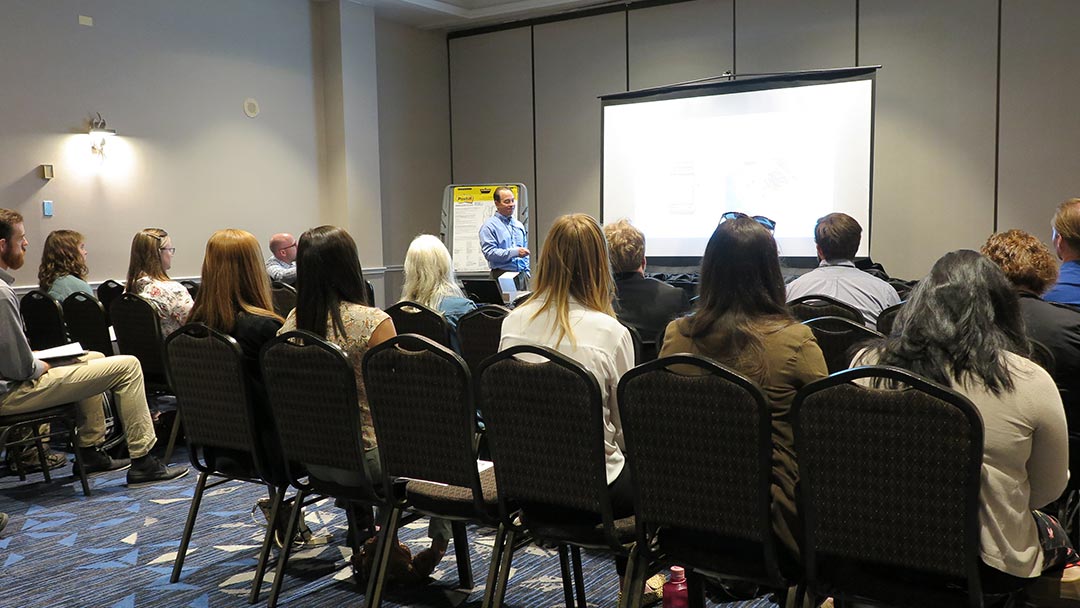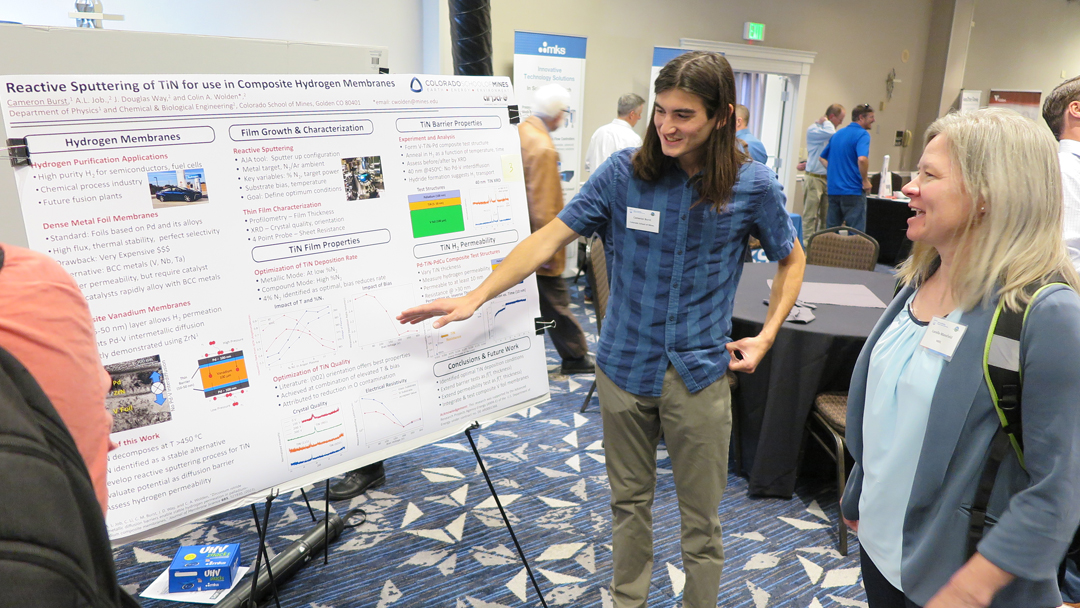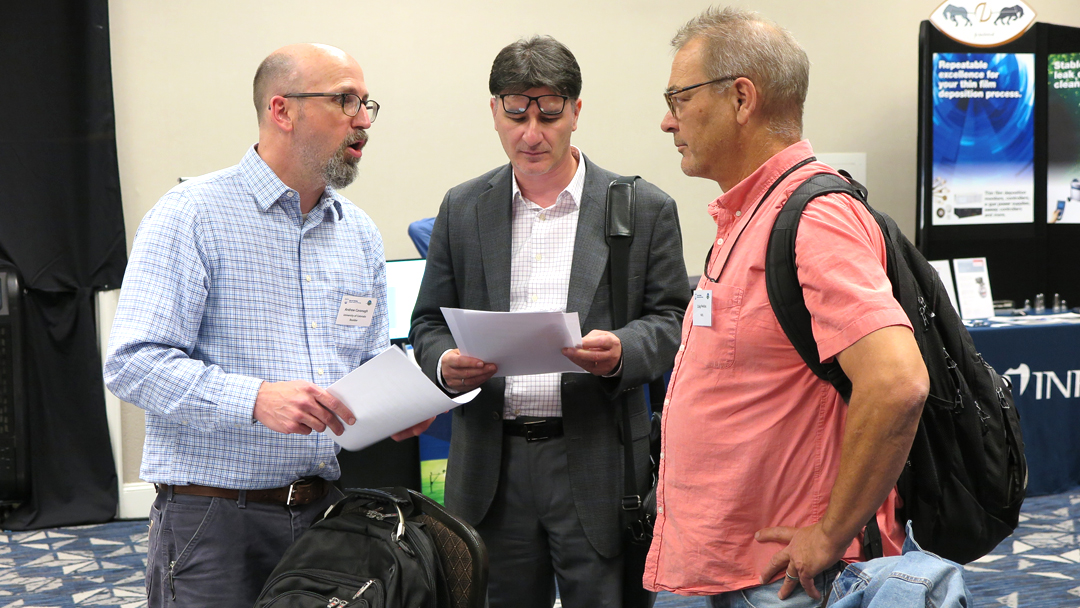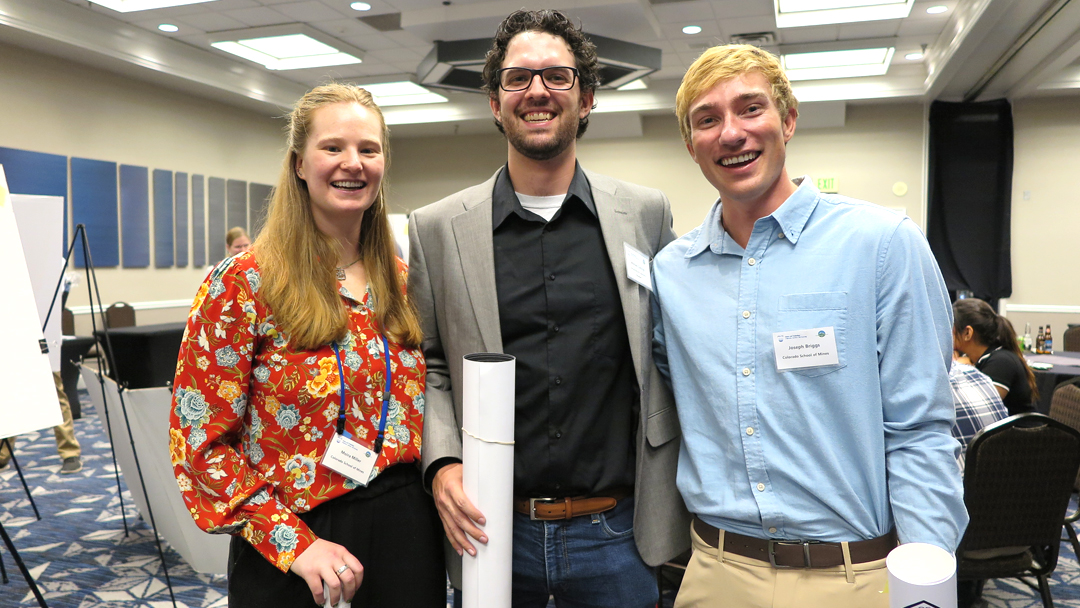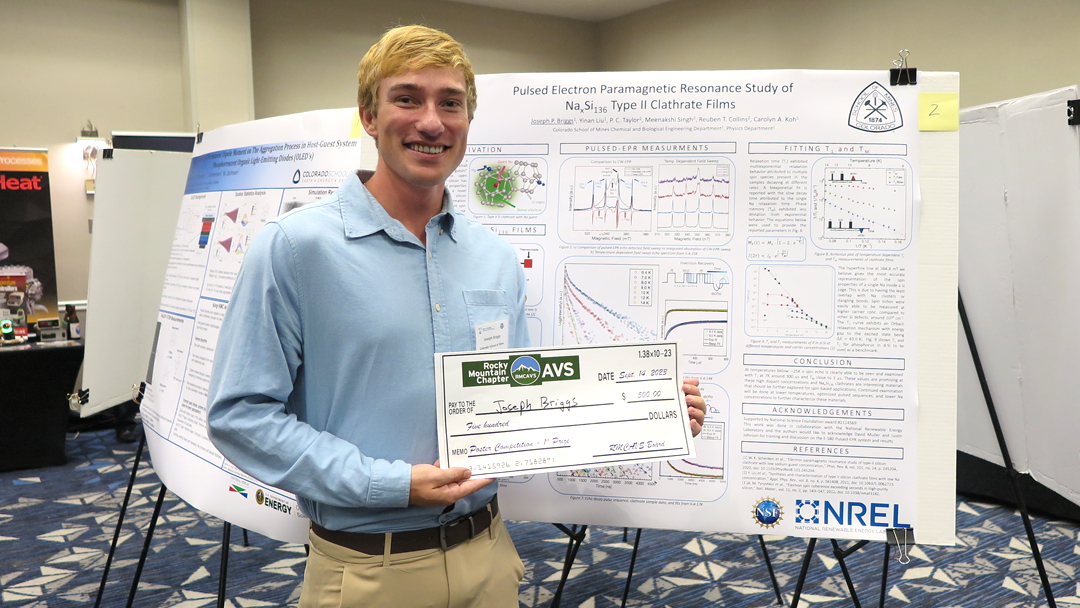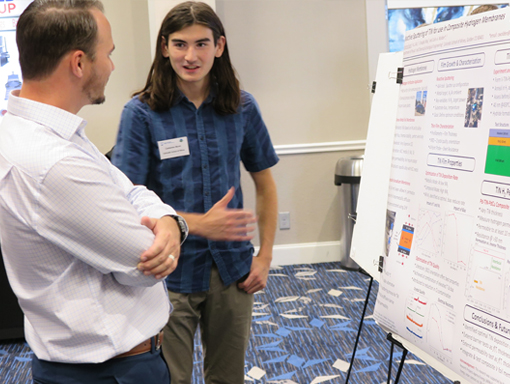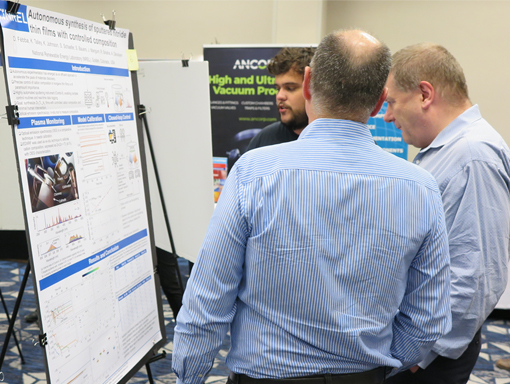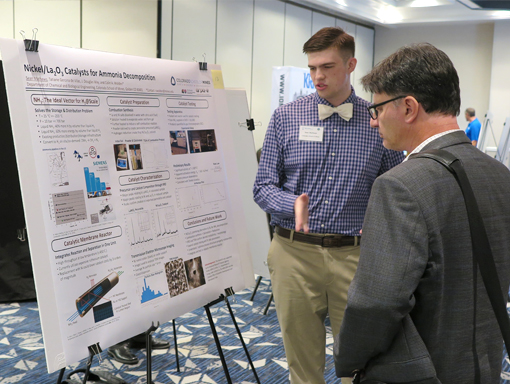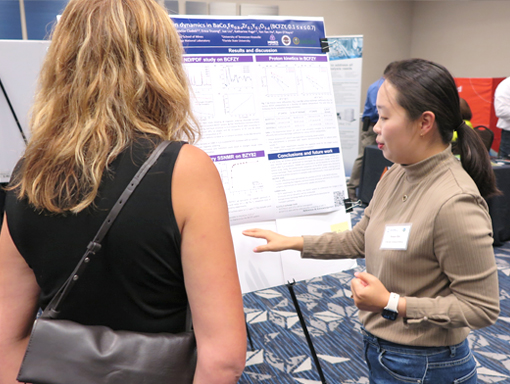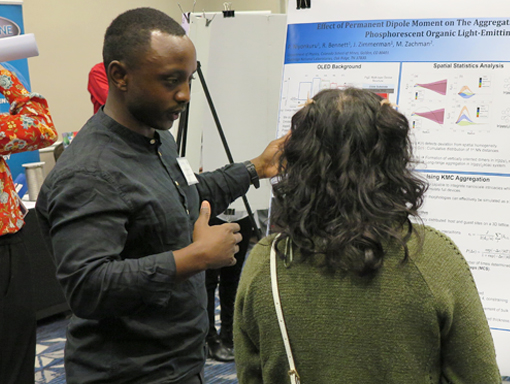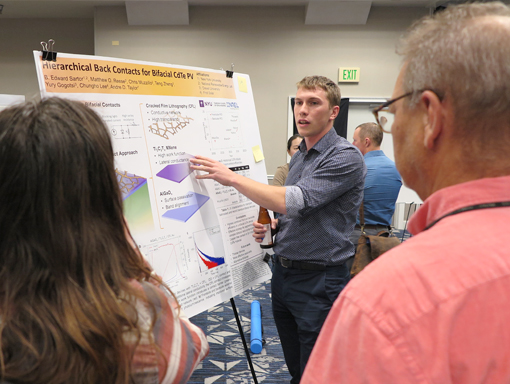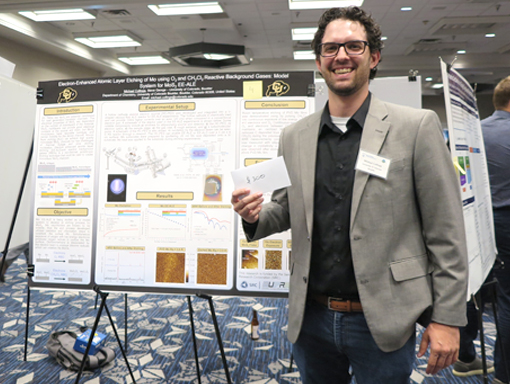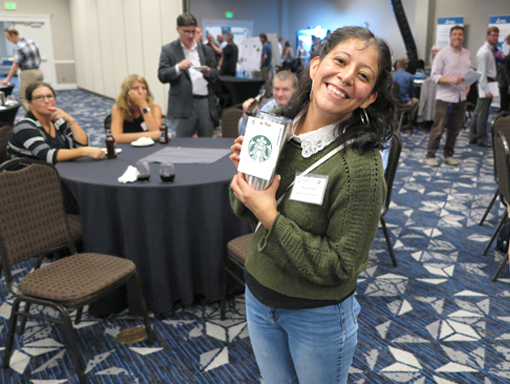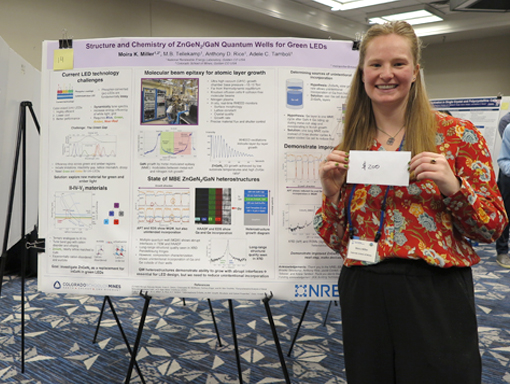2024 ROCKY MOUNTAIN CHAPTER AVS SYMPOSIUM
Thursday, September 19, 2024
DoubleTree by Hilton Hotel – Westminster, CO
The Rocky Mountain Chapter of AVS is very pleased to announce that we will be having our Annual Symposium on Thursday, September 19, 2024. We will have vendor exhibits, talks, two free half-day classes, a free lunch, a student poster session, and a beer/wine social with door prizes.
Please mark your calendar, register, and plan to attend. Updates will be posted here as planning progresses, so do check back.
Symposium
& Vendor Exhibit
Sept 19
Student Posters
& Awards
Sept 19
Short Courses
Sept 18-20
Hidden
9:00 - 9:30 a.m. | Under the Ultimate Vacuum: Working and Living Off the Land Beyond Earth | Angel Abbud-Madrid, Director, Center for Space Resources, Colorado School of Mines
We are entering a new era in space. Robotic and human exploration, as well as dependance on space infrastructure for our daily lives are growing at an unprecedented rate. However, as we continue conducting activities beyond Earth, our efforts will eventually become limited by the materials that we can carry from our planet. In recent years, space agencies and the private sector have increasingly realized that further exploration and growth of economic opportunities in space will require extraction of materials, production of propellants, and power generation from extraterrestrial resources. This will result in more affordable and flexible transportation, facilities construction, manufacturing of components, energy production, and life support systems in space and planetary surfaces. All these activities will be conducted under extreme vacuum, temperature, radiation, and gravity conditions. Testing of equipment designed to collect, extract, and utilize space resources is already under way in terrestrial facilities which are intended to simulate these extreme environments. This equipment will soon be sent to destinations beyond Earth to demonstrate technologies that will prepare the way for working and living off the land in space.
Speaker Bio
Dr. Angel Abbud-Madrid is the Director of the Center for Space Resources at the Colorado School of Mines, where he leads a research program focused on the human and robotic exploration of space and the utilization of its resources. He is also the Director of the Space Resources Graduate Program, aimed at educating scientists, engineers, economists, entrepreneurs, and policy makers in the field of extraterrestrial resources. He has more than 30 years of experience in space projects on NASA’s drop towers, microgravity aircraft, the Space Shuttle, and the International Space Station and received the NASA Astronauts’ Personal Achievement Award for his contributions to human spaceflight. He is currently the President of the Space Resources Roundtable international organization and member of the Committee on Planetary Protection of The National Academies of Sciences, Engineering, and Medicine. Dr. Abbud-Madrid holds a B.S.E. in Mechanical and Electrical Engineering from ITESM, México, and Master’s and Ph.D. degrees in Mechanical and Aerospace Engineering from Princeton University and the University of Colorado at Boulder.
9:30 - 10:00 a.m. | Ammonia can be the new carbon-free petroleum | Joe Beach, Starfire Energy
Decarbonization of our energy systems is essential for climate stabilization. Hydrogen has long been viewed as the carbon free fuel of the future, but its storage and transport difficulties make it impractical for large scale energy storage. Practical decarbonization requires either carbon-based fuels made from CO2 captured from the air, or a change to nitrogen based fuels. Nitrogen is much easier to capture from the air than CO2 is, so Starfire Energy favors nitrogen based fuels. Crude oil is not a particularly good fuel, but its derivatives like gasoline are. Ammonia can be a carbon-free analog to crude oil. It is easily transported and stored, but it is difficult to ignite. However, we can use it to make blended carbon-free fuels with characteristics suitable for replacing natural gas, propane, gasoline, diesel, and aviation fuel. Ammonia should not be viewed as “a hydrogen carrier” any more than crude oil is. It should be viewed as the practical basis for making better performing carbon-free fuels.
10:00 - 10:30 a.m. | Coffee Break and Vendor Exhibits
10:30 - 11:00 a.m. | Quantum Computing | Kristin Beck, Lawrence Livermore National Laboratory
Quantum computing promises to enable calculations that are simply too big for current, classical computing hardware. In this talk, I’ll introduce trapped ions and superconducting qubits, two of the leading platforms for this new computing technique, describe how these platforms are used for computing, and present recent demonstrations using the noisy, small systems available now.
This work was performed under the auspices of the U.S. Department of Energy by Lawrence Livermore National Laboratory under Contract DE-AC52-07NA27344.
11:00 - 11:30 a.m. | Approaching carbon-free electricity by 2050: technology, policy, and some strategy | Steven Christensen, Excel Energy Colorado
A renaissance of new technology is sweeping over the utility sector made possible by society placing higher value on clean energy and innovation in technology. Xcel Energy was the first major utility company in the U.S. to commit to providing its customers with carbon free electricity by 2050 and since has followed up with a goal provide a net-zero solution for our gas business and support clean transportation. While wind and solar energy will provide up to 80% of the clean energy, the “last 20%” will be sourced from the least cost and equitable solution(s) of firm, dispatchable, and reliable electricity. This talk will lay out some of the new technologies that will emerge in the energy transition and what drivers in policy, resources, and cost will play a role. Examples will include long duration energy storage, clean hydrogen, carbon capture, and resurgence of nuclear energy
11:30 - 1:30 p.m. | Lunch and Vendor Exhibits
1:30 - 2:00 p.m. | From automated to autonomous methods for deposition and measurements of inorganic films | Andriy Zakutayev, National Renewable Energy Laboratory
Computer automation of thin film deposition and characterization instruments over the past two decades has led to acceleration of synthesizing and measuring inorganic materials and analysis of the resulting data [1]. The next challenge is how to accelerate conversion of data into knowledge, including insights into conditions at which the following experiments should be performed.
In this talk, I will describe recent development in autonomous synthesis and characterization equipment at NREL. Autonomous instruments are defined as those that take input from previous experiments and make algorithmic decisions on which next experiment to do. Examples will include sputter deposition of thin film nitrides for electronic applications with composition controlled by Bayesian optimization of optical plasma emission [2].
[1] Fulfilling the promise of the materials genome initiative with high-throughput experimental methodologies, M. L. Green, A.Zakutayev et al, Applied Physics Reviews 4, 011105 (2017)
[2] Autonomous sputter synthesis of thin film nitrides with composition controlled by Bayesian optimization of optical plasma emission, Davi M. Febba, Andriy Zakutayev et al APL Materials (2023) arXiv:2305.11122
2:00 - 2:30 p.m. | Inspiring the Next Generation of Scientists and Engineers through Engaging Inquiry-based Learning | Birgit Landin, Colorado Springs Utilities community educator, and DeLene Hoffner, retired Colorado science teacher
Summary
Recipients of the 2022 Rocky Mt Chapter of AVS Excellence in Education awards will provide their perspectives of current circumstances and challenges in STEM education, provide examples of engaging demonstrations that spark curiosity, and provide ideas on how the scientific community can support education.
Abstract
Inspiring students to pursue a career in science, technology, engineering or math (STEM) is proving to be a challenging task, especially after the COVID educational set back. According to studies, most students decide their career direction by the age of 10 years old. If students do not see themselves in a STEM role through witnessing examples or receiving encouragement from teachers, they are unlikely to pursue that route in their lives. DeLene Hoffner, retired science teacher and Colorado Association of Science Teachers past-president, and Birgit Landin, informal educator with Colorado Springs Utilities, will share their perspectives on the current state of affairs and challenges in STEM education in primary school and how employers such as Colorado Springs Utilities are finding it more difficult to recruit employees in STEM fields.
Limited teacher training in STEM and inquiry-based instruction, narrow curriculum constraints and lack of funding for dedicated STEM education play key roles in the current instructional environment. Harnessing the natural curiosity of children at an early age through inquiry-based learning supports future scientists and engineers. Birgit will demonstrate some of the classroom techniques that she uses to spark an interest in students, and DeLene will showcase a successful hands-on experience for students that was designed by another AVS award winning teacher.
The presentation will conclude with suggestions for how the scientific community can support STEM education in schools. Training and support for teachers in the science realm is essential to introducing students to STEM at an early age. Organizations such as AVS can support this through teacher sponsorship, job shadows, classroom visits and scholarships for training programs. Organizations can support teacher training programs such as the Colorado Association of Environmental Education, the Colorado Science Conference, EleSTEMary and Pike Area Leaders in Science which provide valuable STEM teaching tips and skills. The AVS Educator Awards are an important investment that directly supports STEM education.
In summary, despite the challenges facing the educational environment, teachers can inspire the next generation of scientists and engineers by incorporating hands-on, experiential STEM lessons into their curriculum, inviting speakers into their classroom, and providing relatable examples to plant the seed for future STEM careers. The scientific community can support STEM education by sponsoring educational training and organizations, recognizing top notch teachers, giving presentations to students and communicating to teacher groups what skills students need in order to be part of their organization.
Speaker Bios
DeLene Hoffner, a retired Colorado science teacher, has been part of education for the past 40 years. She continues to remain involved in education as the director of EleSTEMary, Chairperson of awards for the Colorado Association of Science Teachers, co-chair of the Colorado Science Conference, co-chair of the Regional Environmental Education Leadership Council, and representative for the Presidential Award of Excellence in math and science teaching. Delene continues to lead professional development for teachers through local school districts, the United States Air Force Academy, the Denver Museum of Nature and Science, the Challenger Learning Center, and more.
Birgit Landin has been providing community water, energy and safety education and outreach services for Colorado Springs Utilities since 2011. She conducts classroom presentations, workshops, community events and statewide education forums to engage citizens of all ages in water and energy efficiency and protection. In 2022 she was awarded the National WateReuse Association Excellence in Outreach and Education award for the PureWater Mobile Direct Potable Reuse Demonstration which showcased advanced water treatment technology for a potential future water recycling option. She also received the Colorado Association of Science Teachers Informal Educator of the Year in Science Education award in 2022 from the American Vacuum Society. Birgit holds a B.S. in Geology from the University of New Mexico and has worked in municipal, state government and private consulting on environmental cleanup, water supply and water quality issues for 20+ years. Prior to joining Springs Utilities, Birgit served seven years as a City of Colorado Springs Park Interpreter at Garden of the Gods Park. She is an avid supporter of our natural resources serving as a Board Member of the Trails and Open Space Coalition and spends her free time hiking local trails with her husband and two adult children.
2:30 - 3:00 p.m. | Update from Congressman Joe Neguse’s office on CHIPs Act | Max Coker from Congressman Neguse's office
Hear from Congressman Neguse’s staff about the CHIPS and Science Act and what it means for Colorado.
3:30 - 6:00 p.m. | Poster Session, Vendor Exhibits, and Social Hour
Free Tutorials presented by JR Gaines of KJ Lesker Co
Thursday, September 19 | Free Registration Required
Short Courses
Wednesday-Friday, September 18-20
CALL FOR PAPERS
Abstracts are requested for poster presentations. The poster session is concurrent with the afternoon happy hour and is fun opportunity to discuss your work. Posters will be judged and three poster prizes totaling $1,000 dollars will be awarded ($500, $300, and $200 for top three posters) plus free door prizes and student travel assistance is available.
To submit an abstract, please download the abstract template, email it to abstracts@rmcavs.org or by clicking on the submit abstracts button below, and register for free. Submit your abstract on or before the deadline of September 6, 2024. Maximum poster size is 48 inches wide by 36 inches tall.
Free Registration
Symposium, Vendor Exhibit, and Poster Session are all free and include lunch. Free registration required.
Students Awards
Students Awards will be presented for best posters.
SPONSORSHIP
The Rocky Mountain Chapter of AVS welcomes you to support our activities — check out the benefits of sponsorship!
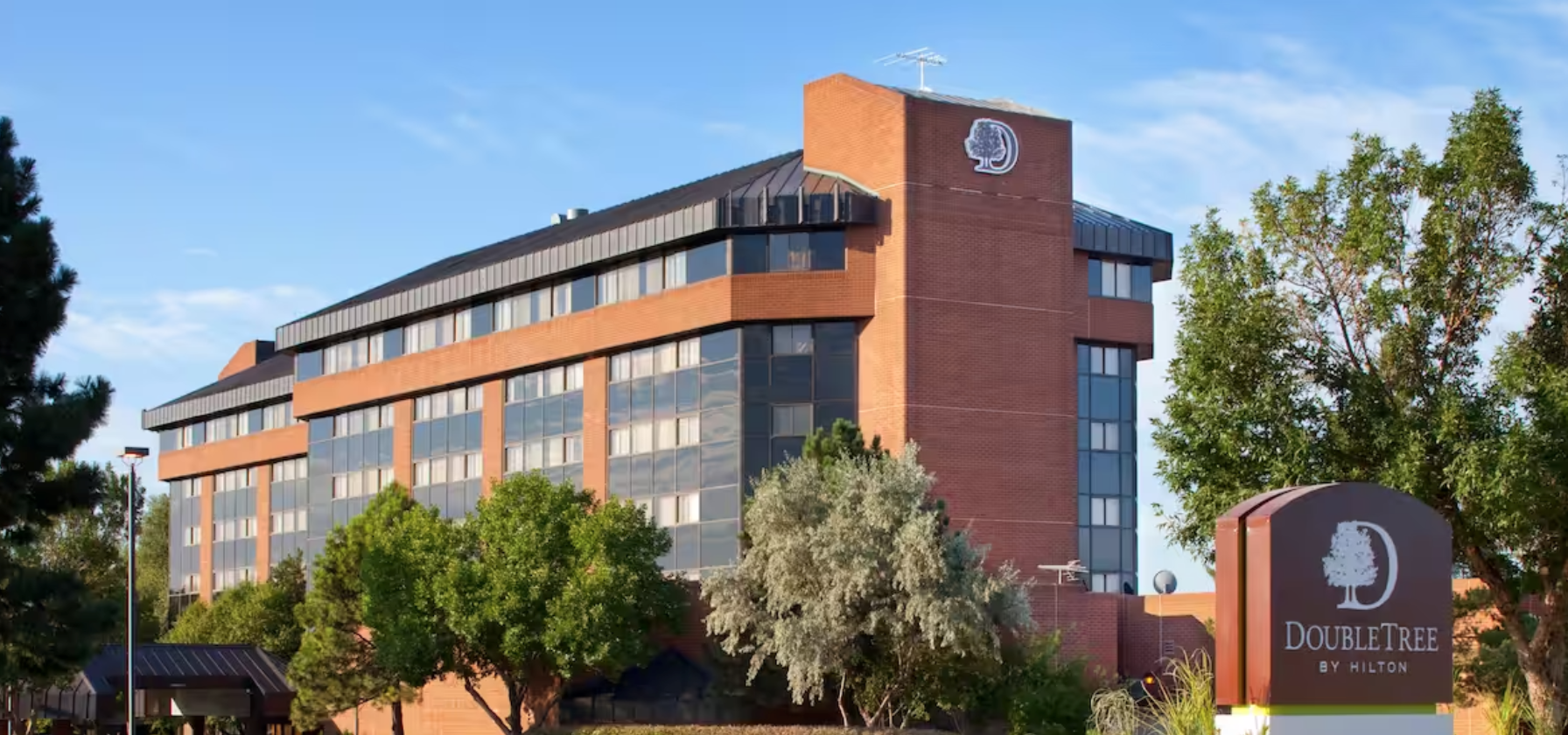
HOTEL INFORMATION
Please reserve your room using our group rate
Please help the Rocky Mountain Chapter contain the costs of our Symposium by staying in rooms from our block at:
DoubleTree by Hilton Hotel – Westminster
8773 Yates Drive, Westminster, CO 80031-3680
The Rocky Mountain Chapter is required to pay to the DoubleTree hotel a penalty for non-used rooms in the RMAVS block. Failure to meet our requirements could noticeably increase the cost of putting on our event.
Group Rate $125 Available Tuesday Sept 17 – Friday Sept 20
Rooms from the room block are a good deal. The Rocky Mountain Chapter room rate is $127, much reduced over the comparable room/rate available from the hotel’s website of $147 (as of January 2023).
Booking
- Call 303-427-4000, ask to get transfered to Sales, and then mention the group code AVS and group name: American Vacuum Society — Rocky Mountain Chapter
- Online at Westminster DoubleTree Hotel with AVS Group Rate
- Any questions? Please email Anastasia Rogers, Sales and Catering Coordinator, DoubleTree by Hilton Denver-Westminster at Anastasia.Rogers@Hilton.com
